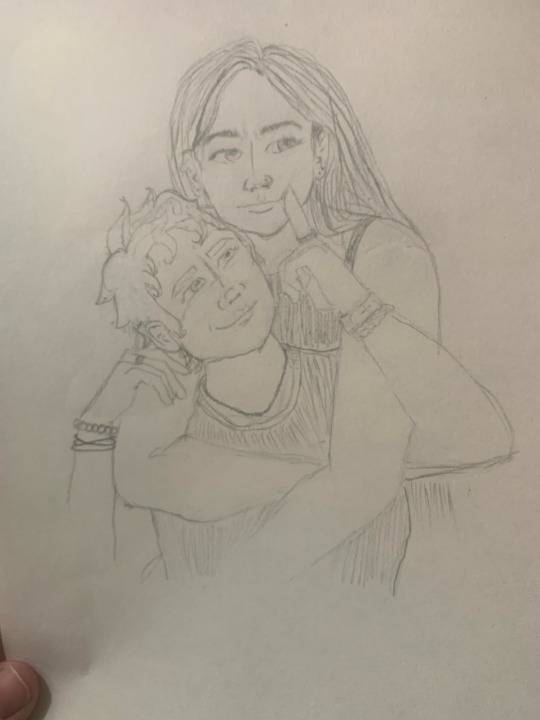Es’s (@essary07) writeblr|•Es • Christian • 32/F• Pro-Life • |OC series:•But still, I find you there (next to me)•Like A Shepherd, He Seeks•Eb & Flo •
Don't wanna be here? Send us removal request.
Photo

46K notes
·
View notes
Text
writers whenever they’re starting a new fic: I have these ✨ vibes ✨ now I’ll have to build an entire plot and write an entire fic about those vibes
32K notes
·
View notes
Text
@everlune-evotide

23 notes
·
View notes
Video
@everlune-evotide

253K notes
·
View notes
Photo

Keiss Castle
is a partially ruined castle in Scotland, which stands on sheer cliffs overlooking Sinclair’s Bay less than one mile north of Keiss village centre, Caithness, Highland,
© Adam Jason
5K notes
·
View notes
Photo
@everlune-evotide Rimedock?

Layers of Earth and Sky
Killarney, June 2017
595 notes
·
View notes
Text
I desperately wish people would start actually reading the AO3's TOS before confidently making 'user guides' to the AO3 that are just blatantly, flatly wrong.
Yes the AO3 has banned content. They do not allow anything that's illegal under US law - though US law, importantly, does not ban fictional depictions of things - and they do not allow any commercial content. That includes your ko-fi link, or mentions that you do fic commissions. If you do post fic commissions to AO3 and want to mention the commissioner, the fic is a 'request' from the commissioner. This protects the AO3 and you from copyright law.
No the AO3 is not 'a creative fanfiction archive'. It is a fandom archive. Your meta, insights, and theories are absolutely welcome and encouraged there. AO3 also encourages you to post other types of fanworks, like fan videos, podfics, and art, but unfortunately isn't able to natively host those like it does text, so fic has kind of become what it's known for. That absolutely does not mean that other types of fanwork aren't allowed, or are discouraged by the site culture! Anybody who tells you otherwise is just plain wrong!
48K notes
·
View notes
Text
Writing Prompt: Dialogue
“It's easy to become a father. It's love, dedication and loyalty that makes a dad. Being a father is the natural order.”
#butstillifindyounexttome#butstillifindyouthere(nexttome)#john bender#dad!john bender#holyfishsticksironman
23 notes
·
View notes
Text
One of the hardest things for me to learn and practice in my writing is that people do not say that much.
My character dialogue frequently feels contrived. They open up to partners too quickly, maintain perfect communication with friends, and hold back exactly the right info from enemies. Yet, irl, I've observed and contributed to much miscommunication, lost opportunities, and unconscious distrust of friendly motivations. Natural speech is not tailored, and appropriately expressing abstract thoughts takes skill.
We've heard film media fans deride "therapy talk" wherein characters uncharacteristically and eloquently divulge their inner struggles to others and receive perfect, textbook advice in response. This feels inauthentic because most humans don't talk like that! We skirt around our problems, we feel uncomfortable when others vent, we want to avoid conflict and rejection, and our well-meant words often do more harm than good.
People also tend to talk a lot, but say little. As writers, we generally don't want our stories stuffed with useless conversations, banter, and small-talk that don't advance the plot—we want that story grown up and moved out! But please, include those things. Have scenes where friends hide thoughts from friends by joking around or discussing hobbies instead, where a rival saves the MC's thoughtless speech for later, where a happy couple argues over a minor miscommunication. These aspects can add depth to a story that feels manufactured, or life to characters that sound scripted.
If this is you, take your time; natural dialogue takes a while to finesse. Currently, I write the meaning behind the dialogue first then smudge it up in redrafts. As with all the lessons I've learned/shared, each piece of writing advice should come with a "Daily Value" label affixed, lol. Balance is needed and adjustments should be made until you have the story you want.
---
+ If you appreciate this advice, consider visiting my ko-fi and Buy Me A Coffee! Thank you for reading 🤗
+ Check me out on AO3, Pinterest, and Unsplash
4K notes
·
View notes
Text
Some tips for using a few words to describe voices:
1. Tone Words: Use tone words to convey the emotional quality of a voice. For example, you can describe a voice as "melodic," "soothing," "sharp," "gentle," or "commanding" to give readers a sense of the tone.
2. Pitch and Range: Mention the pitch and range of the voice. Is it "deep," "high-pitched," "raspy," or "full-bodied"? This can provide insight into the character's age, gender, or emotional state.
3. Accent and Diction: Describe the character's accent or diction briefly to give a sense of their background or cultural influences. For instance, "British-accented," "Southern drawl," or "formal."
4. Volume: Mention the volume of the voice, whether it's "whispering," "booming," "murmuring," or "hushed."
5. Quality: Use terms like "velvet," "silken," "gravelly," "honeyed," or "crisp" to convey the texture or quality of the voice.
6. Rate of Speech: Describe how fast or slow the character speaks, using words like "rapid," "slurred," "measured," or "rambling."
7. Mood or Emotion: Indicate the mood or emotion carried by the voice. For example, a "quivering" voice may convey fear or anxiety, while a "warm" voice may express comfort and reassurance.
8. Resonance: Describe the resonance of the voice, such as "echoing," "nasal," "booming," or "tinny."
9. Timbre: Mention the timbre of the voice, using words like "rich," "thin," "clear," or "smoky."
10. Cadence: Highlight the rhythm or cadence of speech with descriptors like "staccato," "lilting," "rhythmic," or "halting."
11. Intonation: Convey the character's intonation by saying their voice is "sarcastic," "apologetic," "confident," or "questioning."
12. Vocal Characteristics: If applicable, mention unique vocal characteristics, like a "lisp," "stutter," "drawl," or "accented 'r'."
24K notes
·
View notes
Text

I️ started drawing a month ago.
I️ think this is one of my favorite pieces I’ve done, ever.
(Should I️ post more? Tempted to open comms. We’ll see.)
1 note
·
View note
Text
yes I'm a Christian writer. Yes I'm a Christian artist. Yes I'm a Christian whatever--I'm so tired of people being like "I'm not a Christian ___, I'm actually a ______ who is Christian" what?!? No! Say the "Christian" part of my identification louder, it's the only part that matters.
I have been crucified with Christ, therefore it is no longer I who live! No longer I who put pen to paper! No longer I who type! No longer I who thinks and plans and practices and works and communicates--it's Christ who lives in me! He must increase! I must decrease!
If you're a Christian, knock that bogus worldly self-centered crap about "no I'm not part of the 'Christian genre' so I'm not a 'Christian whatever,' because I want to be taken seriously," off. Knock it off, shut up, get out of here with that.
Who cares if you're taken seriously? Who are you doing this for? For others? For Christ? Or just for you and your own credit and your own status? Get away from me with that. Ugh.
Anything you do in your life is supposed to be for Christ. You died. You said He was in charge of you from now on--You said He was the sum total of your identity, from now on. Did you mean it? Or did you mean, "everything except my special interests and career?" Of course not.
Anything you do in your life is supposed to be for Christ. That includes your art, your music, your hobby, your writing, your job. You should be so fortunate, so favored, to be called a "Christian" anything. You're not identifying with the "Christian genre," you're identifying with Christ. The word Christian doesn't mean "little Skillet" or "little Frank Peretti" or "little Dallas Jenkins." The word Christian means "little Christ."
You should be so fortunate to be called "Christian" anything, like the disciples were beside themselves with joy to be called "Christian" prisoners and "Christian" slaves. Because they got to be associated with Christ.
Get out of here. Honestly.
187 notes
·
View notes
Text

The sun is breaking through the fog. At Drogden, 1914, by Christian Mølsted (1862-1930)
194 notes
·
View notes
Text

“Fregatten Jylland” The Frigate Jylland saluting, by Christian Mølsted (1862-1930)
177 notes
·
View notes
Text
Writing Prompt: Dialogue
“Get up, John! Go!”
8 notes
·
View notes



